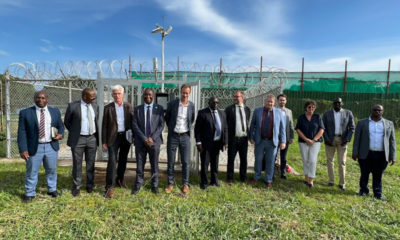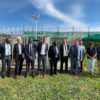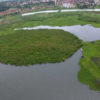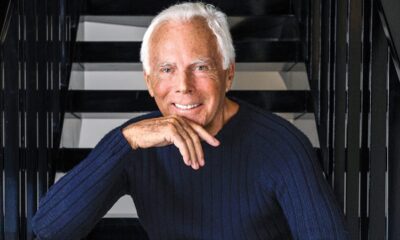News
Museveni challenges Egypt’s controversial position on Nile waters
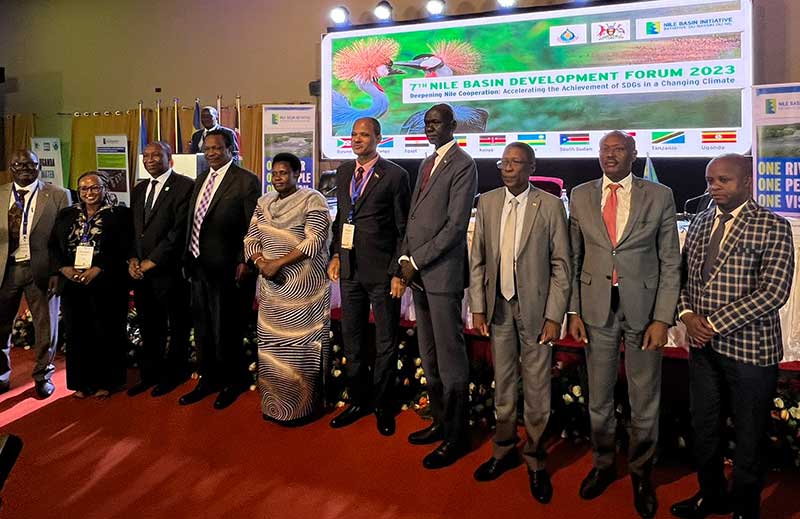
Vice President Jessica Alupo with participants of the 7th NBDF at Speke Resort Munyonyo
Uganda’s President Yoweri Kaguta Museveni has challenged Egypt to abandon its absolutist and uncompromising stance about the use of the Nile Water resources, and instead urged the North African country to adopt the cooperative spirit of Pan-Africanism so as ensure equitable sharing of the benefits of the resource in a peaceful and sustainable manner.
Museveni made the remarks through his Vice President Rtd. Maj. Jessica Alupo who officiated at the opening ceremony of the 7th Nile Development Forum 2023 that was held at Speke and Commonwealth Resort in Munyonyo October 16-18, 2023.
President Museveni asked Egypt particularly to abandon its insistence on relying on colonial era agreements that gave it veto power over any project on the Nile. Instead he urged the Egyptians to embrace the Cooperative Framework Agreement (CFA) that was signed by most countries to ensure that the member countries of the basin agree on the implementation of development projects.
Museveni’s call was made a day after Prof. Hani Sewilam, Egypt’s Minister of Water Resources and Irrigation, tried to shoot down the agenda of the meeting on Monday because, he argued, it ignored the earlier principle of consensus by all member countries.
Egypt’s insistence on consensus means that no development project can proceed without them giving it the green light or what it calls ‘decision-making by consensus.’
Egypt insists that its absolute right to veto projects on the Nile is based on the two 1929 and 1959 agreements between the British government that was ruling over the countries at the time and the Egyptian rulers at the time.
President Museveni and other leaders in the region have rejected these colonial era agreements.
According to Museveni, the agreement which Egypt is concentrating its attention on does not permit some countries to irrigate crops which hinders social economic development in the region.
In his message to the Egyptian Delegation, Museveni said Egypt should join other member states under the Nile Basin to come up with measures of protecting and rejuvenate the environment to increase the water levels of river Nile.
“Egypt should concentrate attention together with all of us to preserve and protect the environment so that the volumes of water in the Nile are reactivated again with big rainfall patterns and therefore enabling all of us to use that water for production and productivity,” Museveni said.
Museveni suggested that the focus should be on appropriate use of the river Nile waters in hydro-power generation and irrigation to create forward and backward linkages that ensure social and economic benefits of all African people and subsequently protect the river.
“Egypt should also look in the direction of the advantages of Electricity. Electricity enables us to pursue our objective and dream of industrialization, industrialization will create jobs for our youth , then our economies will be strengthened. Electricity will also enable us to mitigate environmental challenges because if we get more and more people to cook with Electricity, light with electricity then the forest cover will return and help us regenerate our environment,” Museveni added.
Earlier on in his report to the 31st Nile Council of Ministers Conference (Nile-COM) still held at Speke Resort Munyonyo, the outgoing Executive Director Nile Basin Initiative Eng. Sylvester Anthony Matemu noted with concern that whereas the initiative had made tremendous achievements over the years, it faces negative publicity from one of the member states.
Matemu didn’t name the member but many suspected Egypt to be behind numerous sabotages that are frustrating movement on cooperation.
Matemu noted with concern that the hostile member country early this year persuaded the European Union to cancel funding for a major project it had earlier offered to support.
Comments



